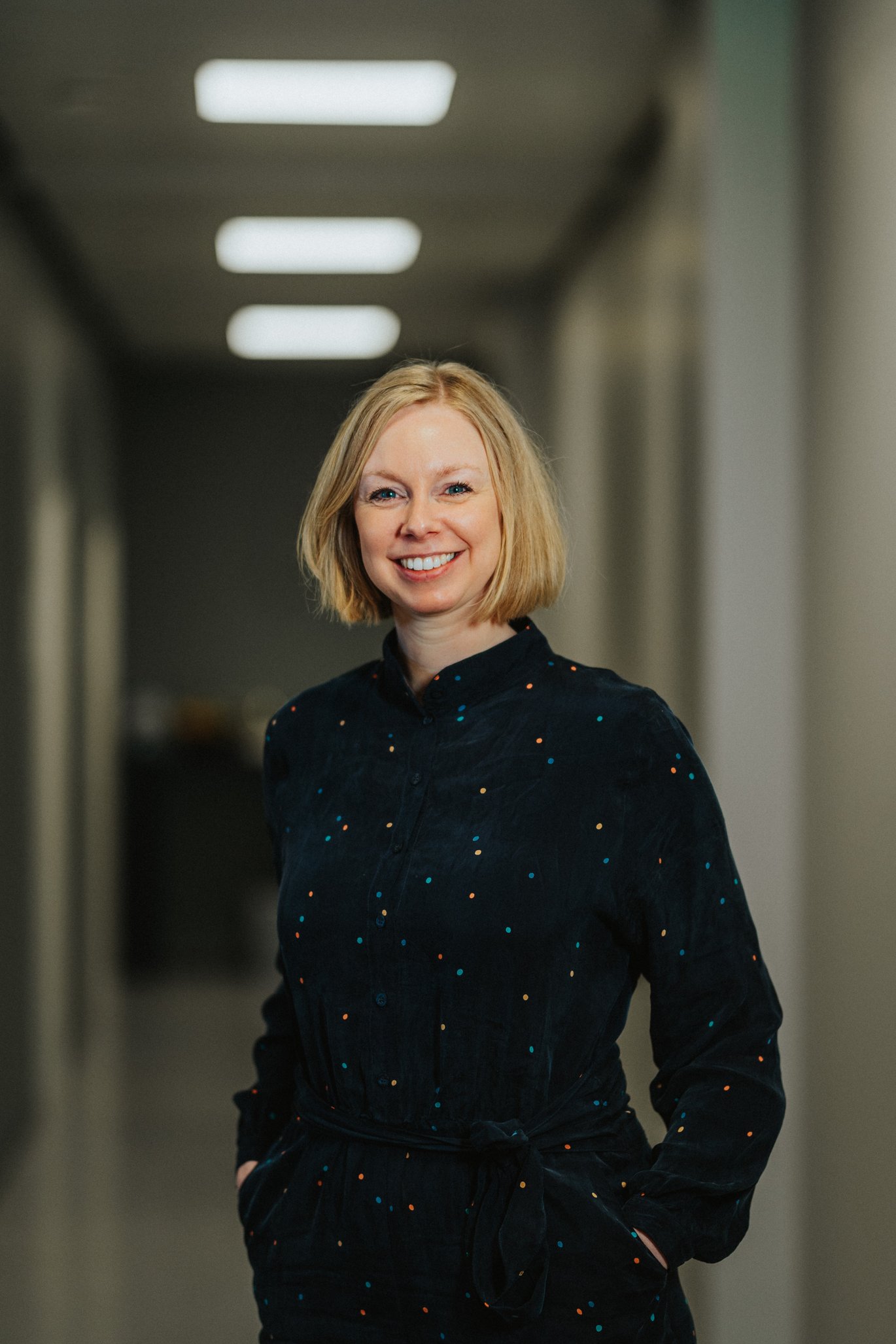From researcher to CEO: “I never imagined this career path”
The distance from research to business may not be as far as it seems. Line Debois discovered that the results from her PhD project in nanoscience could help save lives. Today, she’s the CEO of her own company — and soon heading out to raise €4 million.

“I chose to study medicinal chemistry because I knew I wanted to help patients,”
says Line Debois, now CEO of the pharmaceutical company MedicQuant.
That mission hasn’t changed since she first walked through the doors of the Department of Chemistry at Aarhus University. Today, it’s still what drives her — now from the CEO chair of her own company.
Together with her university research partner, Malthe Hansen-Bruhn, she has developed a technology that can rapidly detect and measure drug concentrations in the bloodstream. This means that life-saving treatment can be given far faster when patients become acutely ill.
“It was purely by chance that I ended up on a PhD project in nanoscience that turned out to have real-world applications,” says Line Debois, adding:
“The results were so promising that we couldn’t just let them go to waste.”
MedicQuant has developed a technology that can identify and measure drug concentrations in blood, delivering precise results in under 10 minutes.
This enables doctors to begin treatment much faster — compared to current methods, which can take several hours.
The device is intended for emergency departments, especially in cases like stroke, where doctors must know how much blood thinner is in a patient’s system before starting critical treatment.
A Milestone Reached
The company is now entering its final development phase before the device is market-ready.
MedicQuant is still operating on the momentum from its initial investment round in 2023, which brought in DKK 12 million. But this autumn, Line Debois and Malthe Hansen-Bruhn will be seeking DKK 30 million (€4 million) to complete product development.
They’ve already passed a major milestone:
A large patient study conducted in the UK, Germany, and Denmark confirmed that their technology performs just as well as the current lab-based systems used in hospitals.
“Our goal isn’t to outperform central labs — it’s to match their accuracy, but deliver results faster. And we do,” she says.
In addition to the patient study, nurses from stroke units in two countries have tested the device and provided valuable feedback for the final development phase.
“We expect to have a finished product in hand within 18 months,” says Line Debois.
The plan is to roll the device out to hospitals across Europe and the U.S. once it receives clinical approval.
“In a way, our sales process has already begun — by doing patient studies with leading hospitals in Europe,” she explains.
No Business Without Research
Sales is just one of many new areas Line Debois has had to master since she first started as a student at Aarhus University.
“The transition from research to business has been tough. There’s a lot to learn in this world, which is very different from the lab,” she says.
It has taken guidance and support from more business-savvy people to help the two researchers turn their idea into a viable company.
But MedicQuant would never have existed without the research behind it.
“If the technology didn’t work and produce strong results, there would be no potential to build a business,” she explains.
That’s why early support from their PhD supervisor, Professor Kurt V. Gothelf — from the Department of Chemistry and iNANO — was essential. He also helped co-found MedicQuant.
“We’re constantly learning and growing into our roles as business owners,” says Line Debois.
“But I never, ever imagined that my research would take me here.”
